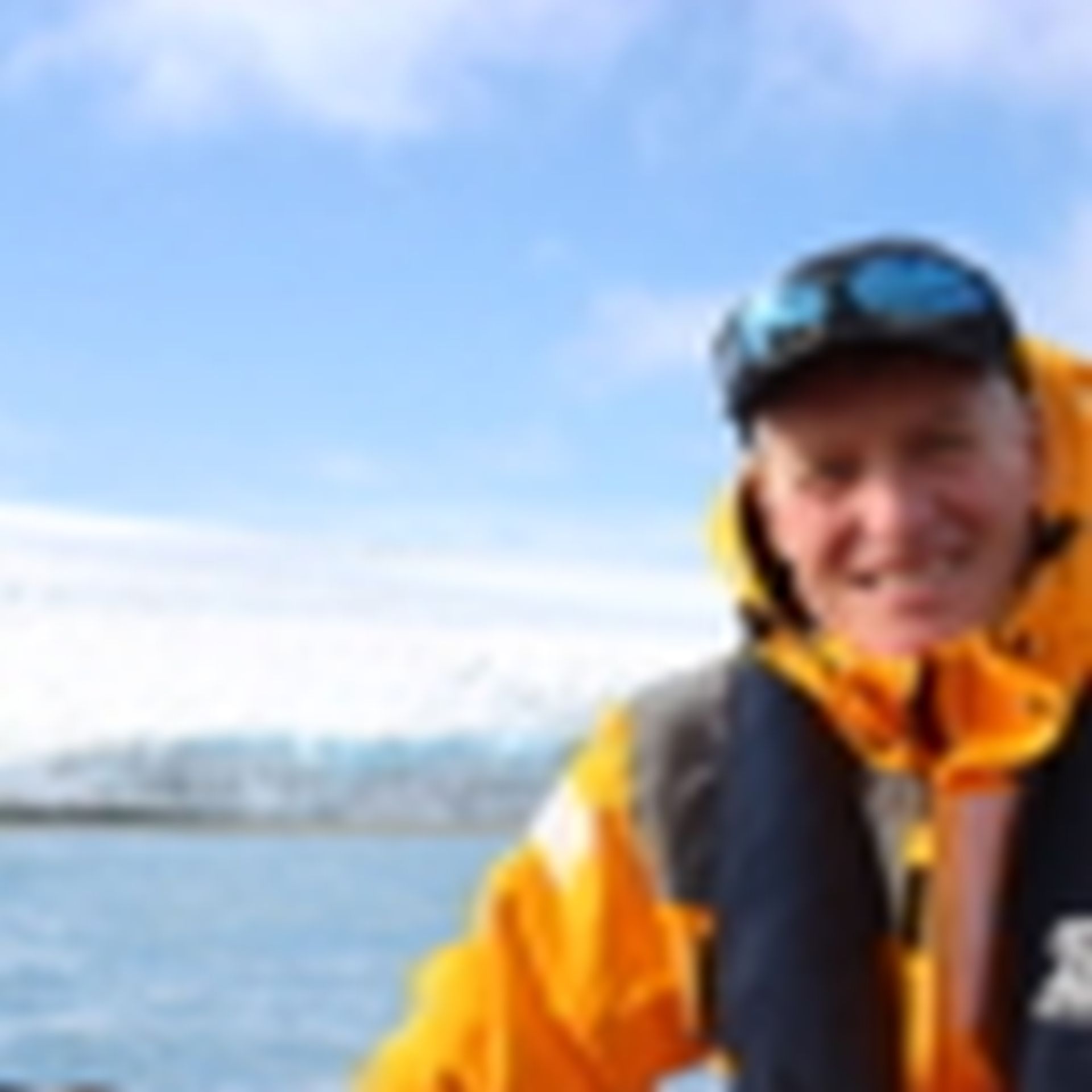A Living Laboratory
After a short break and some time to process her experience in Antarctica, we caught up with Inspiring Explorer Laurette Siemonek to get her perspective on the expedition, and find out about the highlights of her trip, and the big challenges she faced.
About Laurette
Laurette is a Senior Policy Analyst at the Ministry for the Environment. She is seconded to the Office of the Minister for Climate Change, advising on climate change policy. Last year, she graduated from Victoria University with a Masters in Climate Change Science and Policy, awarded with Distinction. Laurette is passionate about environmental policy, and supporting effective climate change action.
In 2016, she was selected as one of nine youth delegates to represent New Zealand at the 22nd United Nations Conference of the Parties (COP 22) in Marrakech, Morocco. In 2019, she represented NZ at COP25 as part of the official New Zealand Government delegation in Madrid, Spain. Laurette is involved with coaching and mentoring more junior colleagues and Victoria University students. In her spare time, Laurette has been training for a charity boxing event later in 2020, and loves getting outdoors wakeboarding, kayaking, and hiking.
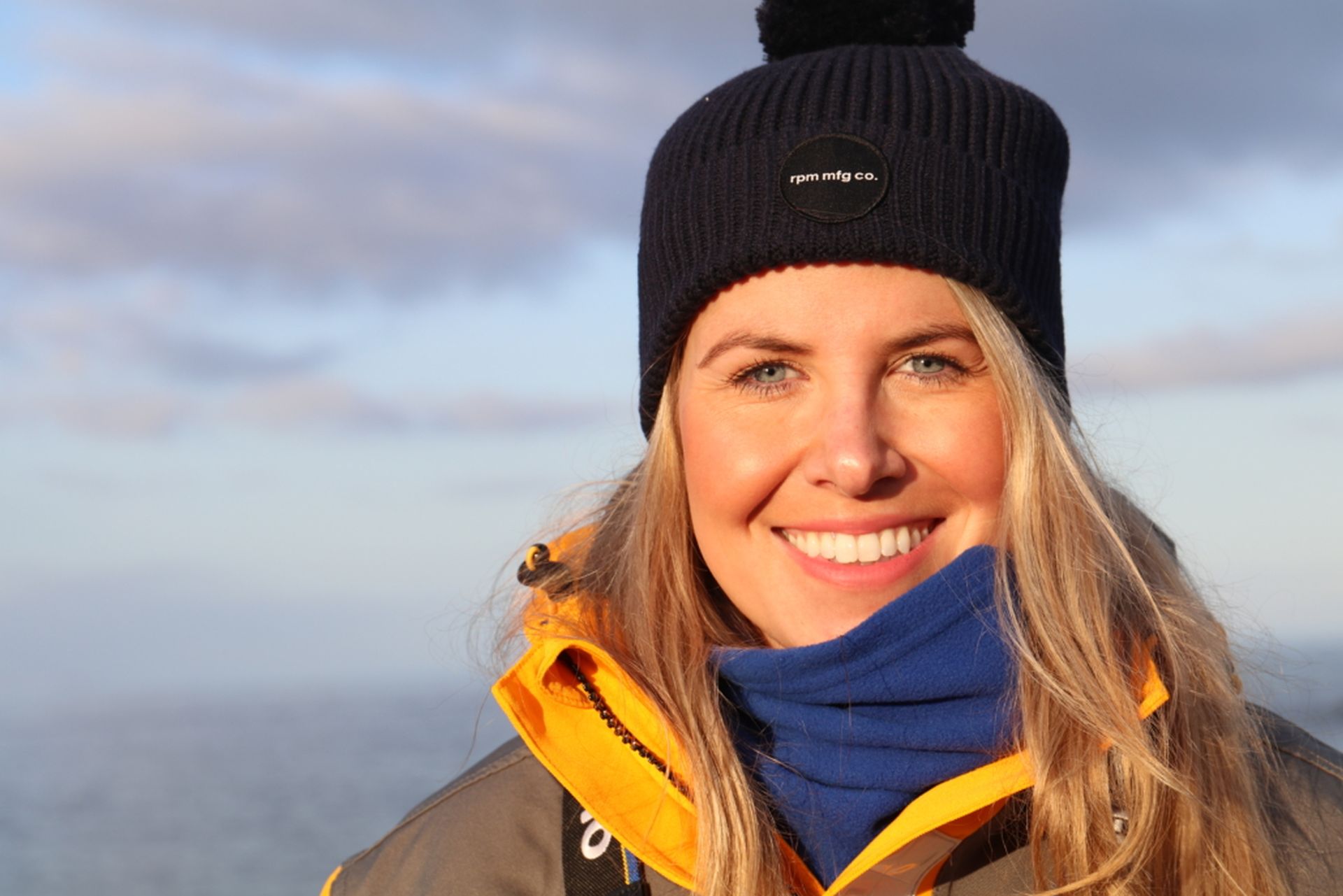 Marcus Waters/ Antarctic Heritage Trust
Marcus Waters/ Antarctic Heritage Trust Laurette in Antarctica
What was your favourite part of the trip?
I loved every second that I was in Antarctica but if I had to choose one moment, it would definitely be on our final day when we kayaked through the brash ice in Wilhelmina (“Whale-amina”) Bay, while snow fell, and humpback whales breached the surface and fed around us. Wilhelmina Bay is enclosed by stunning mountainous glacial landscapes, and while we were there, also massive floating icebergs that dwarfed us as we kayaked past them. It was absolutely surreal.
A close second favourite moment was when we landed for the first time on mainland Antarctica. While we had spent the previous few days in the South Shetland Islands in the Antarctic Region, it wasn’t until I actually stepped foot on the mainland that it truly felt like I’d made it. As I scanned my surroundings, I saw mountains covered with glistening snow and ice, playful Gentoo penguins, and there was even a Minke whale breaching the surface between icebergs not far from shore. I’ll never forget the feeling of absolute privilege and awe that I had in that moment.
What was the most challenging part? How did you conquer this?
Definitely crossing the Drake Passage, also known as ‘the roughest sea in the world’, on our return to Argentina from Antarctica! When we crossed on the way to Antarctica, we had been treated to an unprecedented smooth passage, however, on the way back there was a strong front coming through. I don’t usually suffer from sea-sickness but I was definitely challenged by the eight metre-plus swells!
Forcing myself to get out of the cabin and into the crisp fresh air definitely helped! The Drake Passage hosts an abundance of seabirds, such as the albatross, petrel, shags, skuas, and gulls, so scanning the horizon for these birds provided an excellent distraction. Along with a lot of sleep!
What did you learn or discover about yourself?
The peace and enjoyment that comes from living in the moment, without technological distractions. My work phone tends to be an extension of my hand – taking phone calls, replying to emails etc. But down in Antarctica, unsurprisingly, there’s no cell phone reception and I made a conscious decision not to purchase internet on the ship.
Without the usual ‘life distractions’, I spent the majority of time connecting with the other 198 passengers from all over the world, engaging in the activities that the Quark Expeditions staff put on, and really grasping every opportunity and enjoying every moment that we spent in Antarctica. It also allowed me to reconnect with my passion for getting out into nature and exploring – to the point that as we were kayaking around the Antarctic Peninsula, taking in the spectacular landscapes and wildlife, we were completely unaware of the escalation of COVID-19 as a global pandemic!
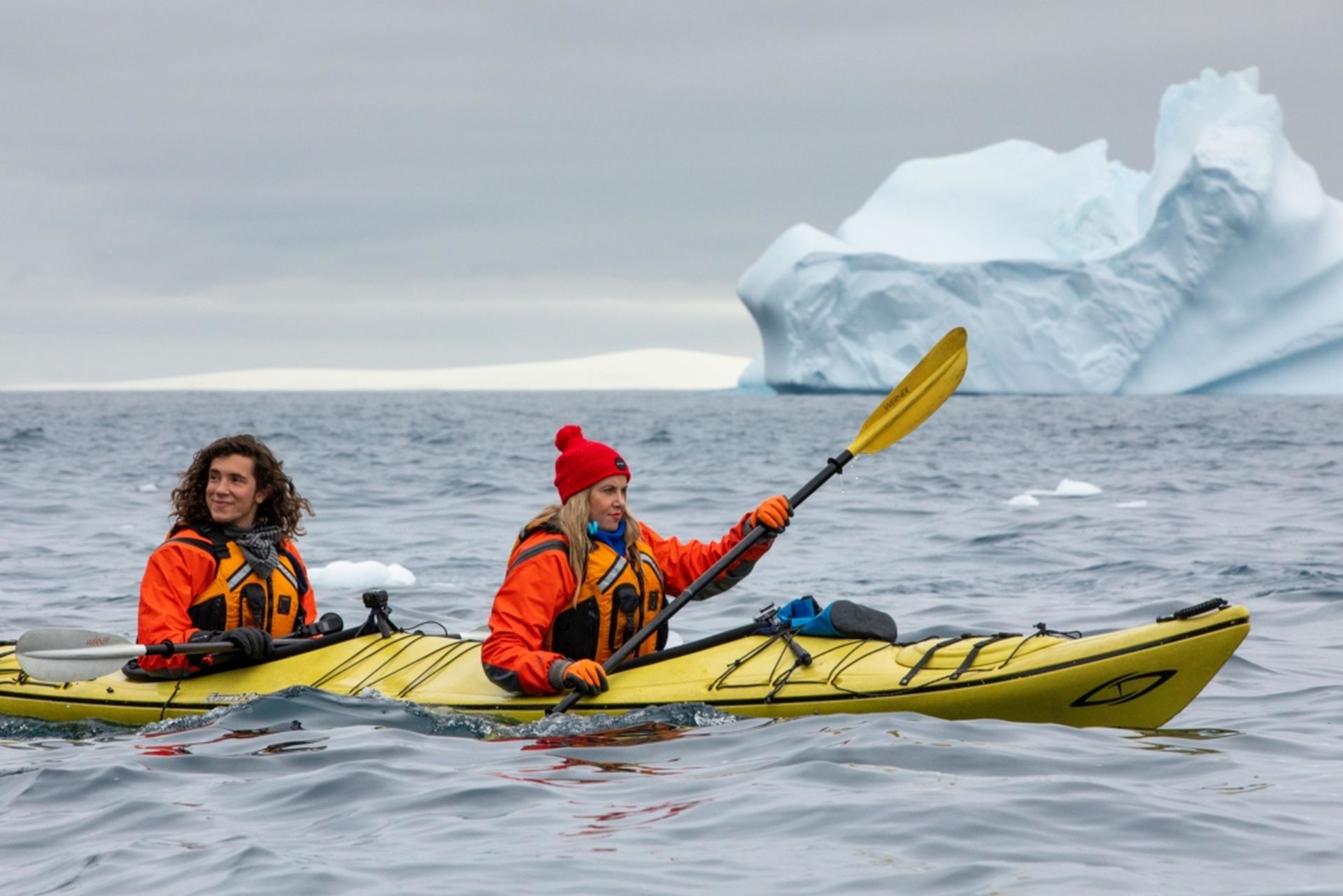 Mike Dawson Antarctic Heritage Trust
Mike Dawson Antarctic Heritage Trust Laurette and Anzac Kayaking
Which sights, sounds, feelings and experiences of Antarctica stand out as you reflect back on your experience?
I don’t think there were many sights, sounds, feelings, or experiences of Antarctica that didn’t stand out! To list a few: the massive mountainous landscapes; the abundance and inquisitive nature of the wildlife; the rocky landmasses that (oddly) weren’t covered in any snow or ice; the diversity and unpredictability of the weather (one day it was very warm and the next it would be snowing!); the speed and thunder-like crashing echoes of icebergs carving; and the sounds of brash ice bagging against the bottom of our kayaks. Sharing the excitement of seeing our first ice berg; reaching Antarctica; stepping foot on mainland Antarctica; undertaking the ‘polar plunge’ and diving into the coldest waters on the planet; and getting into the sea kayaks and exploring two new locations in the Antarctic Peninsula each day were also incredible.
How did going to Antarctica make you think about the historic polar explorers? In what way did these reflections impact on your personal experience?
Modern technology, like the internet, allows you to research Antarctica and within seconds you can access pictures, and obtain an understanding of the history, the weather conditions, the geography etc. However, despite doing research before I left, I still wasn’t completely prepared for the significance and scale of Antarctica, or its unpredictable conditions. I cannot imagine what the historic polar explorers would have thought and felt when they adventured into the unknown and finally arrived to experience Antarctica’s magnificence and extreme conditions themselves!
How did you and the team deal with the disruption to your trip caused by COVID-19? Did this experience make you reflect on the challenges faced by the historic explorers? What similarities do you think there might be?
While we were in Antarctica, the COVID-19 situation escalated into a global pandemic, which brought significant global border restrictions that evolved on a daily basis.
We dealt with the situation by taking each day as it came and working hard to keep morale high. Each day brought new cancellations and travel limitations, so we quickly learned not to get too invested in a particular plan! By the time we returned to New Zealand, incredibly relieved, it would be fair to say that we were all very experienced in applying flexibility and resilience to a highly ambiguous and fluid situation. These are skills I imagine the historic polar explorers were experts in, after spending uncertain periods of time trapped on the ice!
What was something you experienced that was different to your expectations?
I was astounded by Antarctica’s mountainous landscape. Growing up, I had always imagined Antarctica as a massive, flat, ice-continent, but in reality, it’s incredibly mountainous and also not entirely covered in snow or ice. While this varies seasonally, I was surprised by the amount of landmasses we kayaked past that had no snow or ice, but were instead covered in rocky terrain.
I also didn’t expect the abundance and inquisitive nature of the wildlife that we encountered – from seabirds and penguins to seals and whales. It provided a reminder of what the planet was like before human influence.
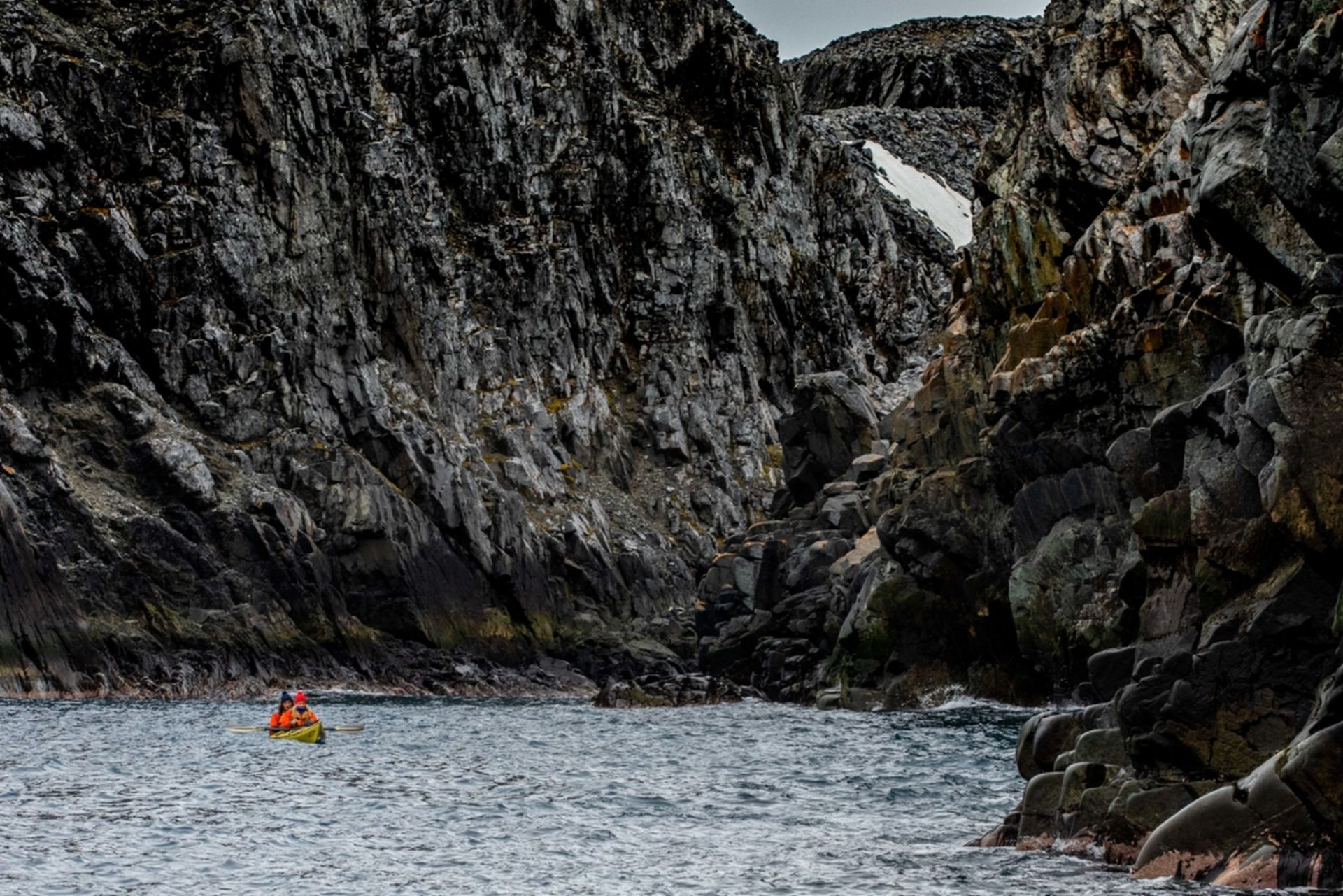 Mike Dawson/ Antarctic Heritage Trust
Mike Dawson/ Antarctic Heritage Trust Antarctic Rocky Terrain
When you share your story, what will be the things you want to share most?
Antarctica is one of the most special places on Earth. It’s the coldest, windiest, and driest, single largest ice mass in the world, and is home to some of the most pristine oceans, with an enormous variety and quantity of wildlife, much of which is only found in Antarctica.
Because Antarctica is so unspoiled, it acts as a laboratory for the rest of the world where changes can be measured in isolation from the effects of humans. It also holds the records of what our planet’s climate was like over the past hundreds of thousands of years. However, Antarctica is also incredibly delicate and vulnerable, particularly to issues like climate change.
This expedition has really emphasised the importance of the work that the Antarctic Heritage Trust does in conserving the historic sites, along with the collective effort of the 54 Parties (including New Zealand) to the Antarctic Treaty. Because most of the world’s population doesn’t live in or ever experience Antarctica, it can be easy to forget it exists or to question ‘why does Antarctica matter to me?’ The reality is, it matters to all of us. Antarctica plays a critical role in our global climate system. Ensuring the successful preservation of Antarctica, particularly to issues like climate change, is in all of our best interests, as the fate of Antarctica will determine the fate of New Zealand, and in actual fact, most of the world.
Any comments about the team itself? What were the strengths of the team? Why do you think it worked well together?
The pre-expedition Team Building Weekend was invaluable at providing an opportunity to get to know one another, including our strengths and weaknesses, and our motivations and objectives of the experience. It ignited a strong bond between us – a bond which was tried and solidified during the expedition. While we were a very diverse group of individuals, one area we shared commonality was banter, which became crucial when facing the COVID-19 related challenges.
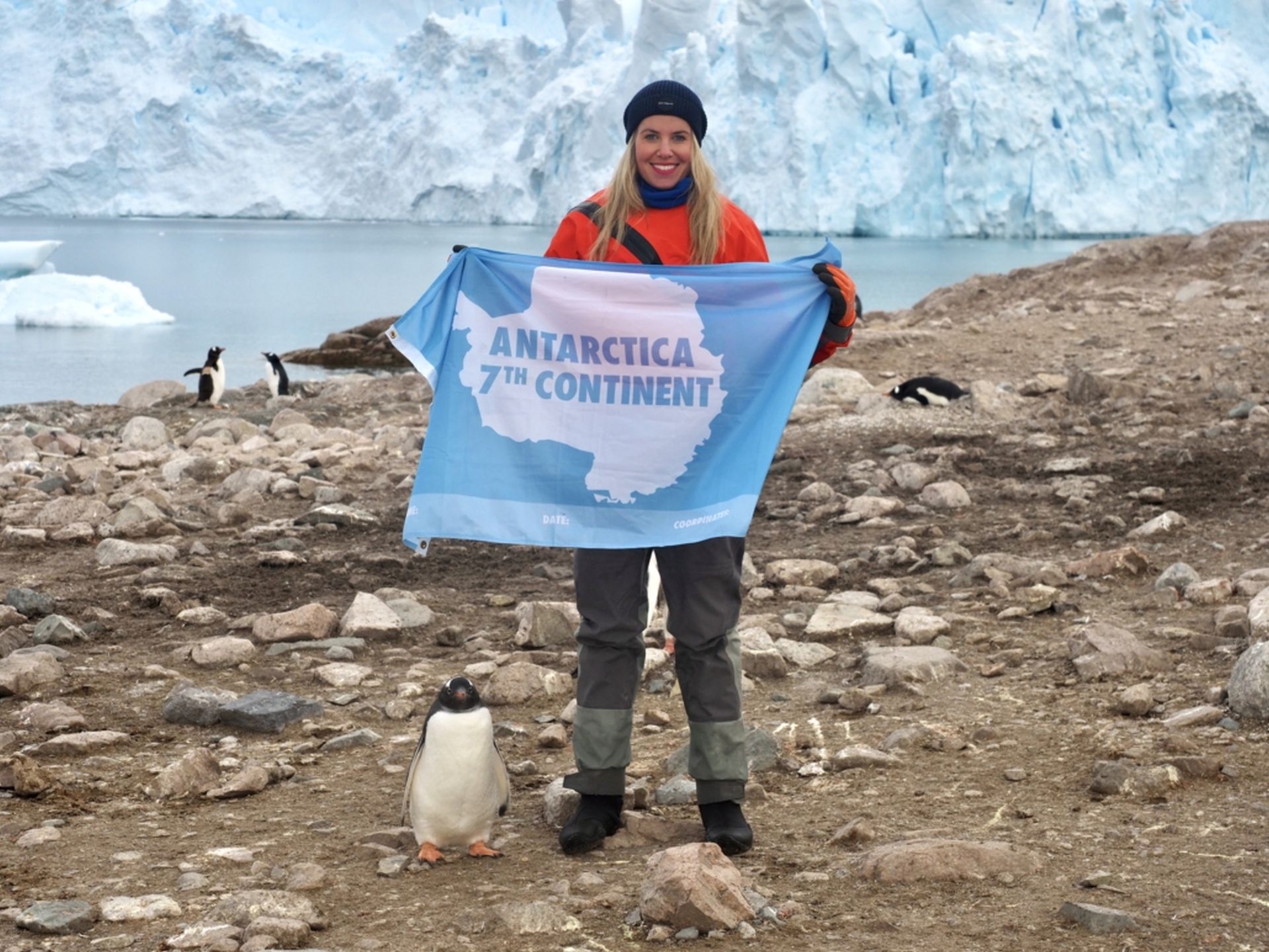 Mike Dawson/ Antarctic Heritage Trust
Mike Dawson/ Antarctic Heritage Trust Laurette’s 7th Continent
Would you recommend others apply for future expeditions and why?
Definitely! While we faced exceptional challenges, given the opportunity, I would apply again in a heartbeat. The thrill you get from putting yourself outside of your comfort zone and for us, exploring Antarctica, the most remote and extraordinary place on Earth, in sea kayaks, was a once in a lifetime opportunity.


